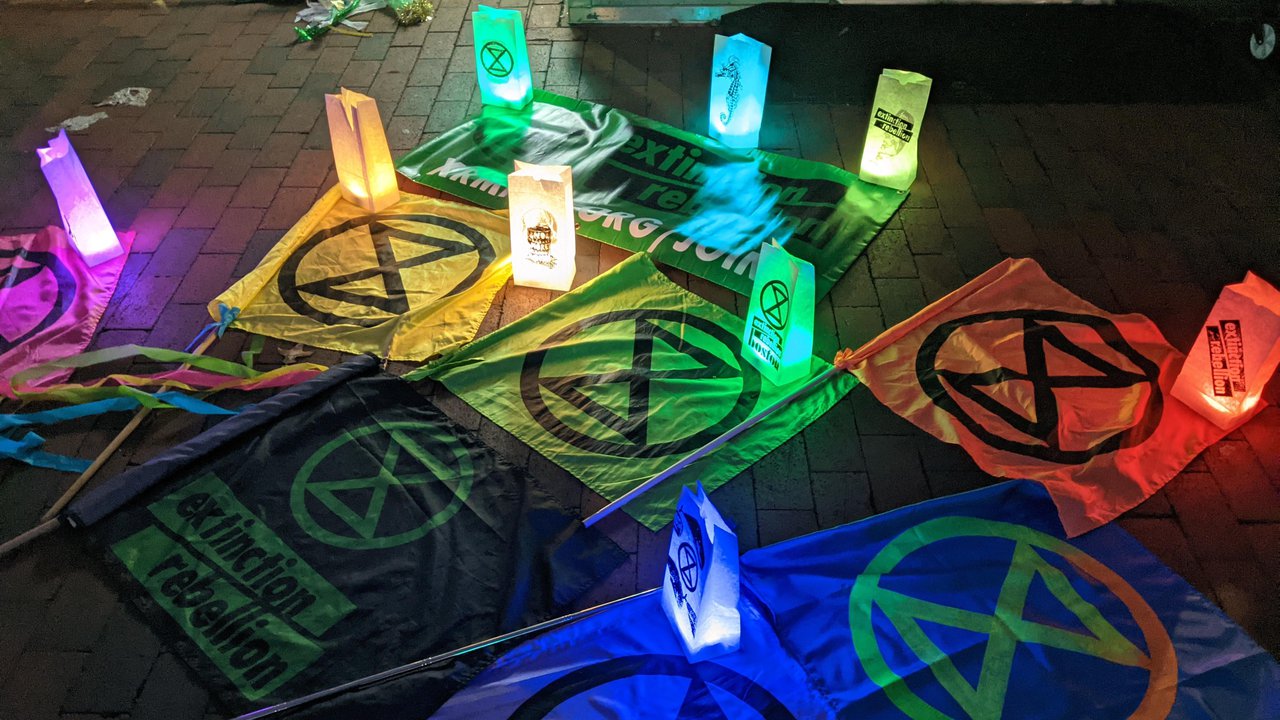
The "Grim Scenario" of Winter Sports in Climate Collapse
It's the winter sport season, a time when many of us try to chase away the Seasonal Scaries by getting outside and getting active, whether by snow shoeing, ice climbing, or skiing! The trouble is, the climate collapse is making this increasingly less possible.
As reported in the Providence Journal, "New England is experiencing less-consistent snowfall throughout the winter, replaced instead with more isolated storm events that bring a large amount of snow all at once, scientists say (...) A recent analysis by Climate Central shows that winters have warmed by 3.3°F on average across 238 U.S. locations since 1970. Parts of New England are far above the national average. Winters have warmed 7.1°F in Burlington, Vermont − the most in the nation − and 6°F in Concord, New Hampshire."
This overall warming and less consistent snowfall has driven ski and snowboarding resorts across the Northeastern USA to manufacturing snow for their slopes, which is a water-intensive band-aid on the issue. A 2022 study by the University of Basel warned that ski and snowboarding resorts will have to increase their reliance on artificial snow as global warming progresses. Given the elevated amount of water required for marking snow, from now until the end of the century, resorts’ water consumption is expected to increase by about 80%, up to 540 million liters compared with 300 million liters used today.
Once the snow is manufactured and pumped onto the slopes, it's another problem entirely to get it to stay frozen in the increasingly warm winters. According to a spring 2024 study, which assessed more than 220 ski areas across four US regional ski markets, the average US ski season has shortened between 5.5 and 7.1 days in the 2000-2019 period, compared to 1960-1979, and it is expected to further shorten anywhere between 14-33 days and 27-62 days by 2050 in a low and high emissions scenario, respectively. This resulted in huge economic losses for the country’s ski industry, amounting to an average of $252 million a year and exceeding $5 billion over the past two decades. Researchers confirm that the costs of snow shortage come primarily from lost revenue due to late opening or early closure of ski slopes and the cost of creating machine-made snow.
Another study calculated that only 15% of ski areas in Quebec, the rest of Canada, and the northeastern U.S. remain economically viable under a higher greenhouse gas emissions scenario, defined as being open for more than 100 days a year. Higher elevation resorts in the Rockies and the Sierra are far more resilient to temperature changes, but everyone will take a hit. “Virtually all locations are projected to see reductions in winter recreation season lengths, exceeding 50% by 2050 and 80% in 2090 for some downhill skiing locations,” states the report.
This blow to winter sports is an excellent example of how the climate crisis affects every part of human life, from our livelihoods to our recreation. If those in power do not take immediate action to combat the climate crisis, by banning new fossil fuel infrastructure and other means, they are dooming the economies of ski towns, the Winter Olympics, and their own Swiss vacations. By the way, according to a study from the University of Waterloo, only one of the 21 cities that hosted the Winter Olympic games in the past 100 years will have a climate suitable for winter sports by the end of the current century.
Fight for a future with snow! Attend an upcoming online Non-Violent Direct Action Training to learn how to take direct action!
Featured:
-
The third annual Week of Rebellion is full of opportunities for celebration and action!
-
Our government had the opportunity to finally turn our state into a "climate leader," and they decided yet again to prioritize profits and political posturing over the well-being of residents.
-
Prominent climate scientists and activists demand immediate climate action in the United States.
-
Stop the Fossil Fuel Industry, Now: List of events for Extinction Rebellion Boston's September week of rebellion
-
A compilation of books, movies, articles, and ways to take action to protect Black lives
-
Nadia Colburn, PhD and member of Extinction Rebellion Media team, discusses how to talk about the climate and ecological crisis with family and friends.
Upcoming Events:
-
Wed Mar 4th @ 11 a.m.
-
Thu Mar 5th @ 7:30 p.m.
-
Sat Mar 7th @ 11 a.m.